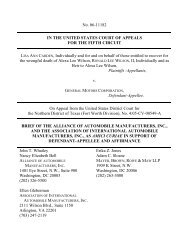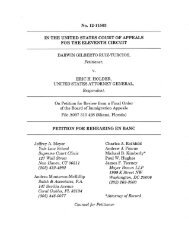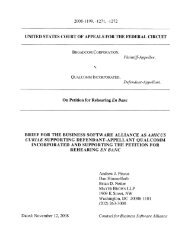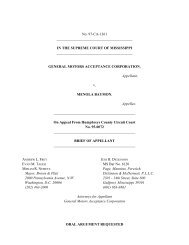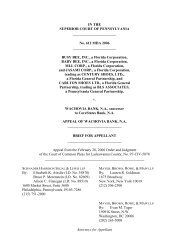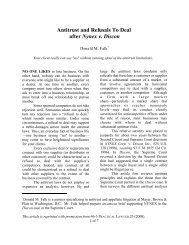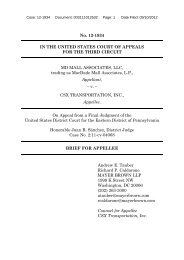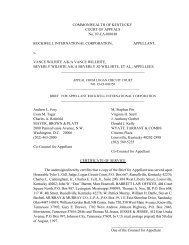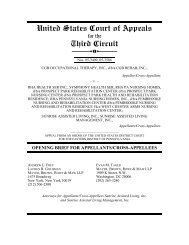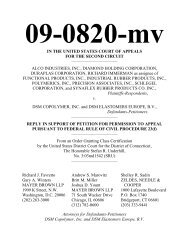No. 5-99-0830 IN THE APPELLATE COURT OF ... - Appellate.net
No. 5-99-0830 IN THE APPELLATE COURT OF ... - Appellate.net
No. 5-99-0830 IN THE APPELLATE COURT OF ... - Appellate.net
You also want an ePaper? Increase the reach of your titles
YUMPU automatically turns print PDFs into web optimized ePapers that Google loves.
Mathur’s testimony was particularly prejudicial because the circuit court improperly<br />
refused to instruct the jury about fundamental damages principles. For example, the court<br />
refused State Farm’s proposed instructions that it “cannot be liable if a class member<br />
disposed of his or her vehicle after it was repaired with non-OEM crash parts and did not<br />
lose money due to the fact that the car was repaired with non-OEM crash parts,” A. 74, and<br />
that “State Farm cannot be liable if a class member had non-OEM crash parts specified in<br />
his or her repair estimate, but had OEM crash parts installed on his or her vehicle at no<br />
additional cost to him or her,” A. 73. The court also refused to instruct the jury that “[t]he<br />
mere fact that a non-OEM crash part was specified in a class member’s repair estimate is not<br />
sufficient to establish State Farm’s liability.” A. 70. Indeed, despite holding that the viabilty<br />
of specification damages was a jury issue, the court refused to tell the jury that it was free<br />
to reject Mathur’s theory of specification damages. A. 71. All of these instructions were<br />
proper statements of the law, and all were necessary to dispel the erroneous impression<br />
Mathur had been allowed to create. The court’s refusal to give these instructions was an<br />
abuse of discretion, which in and of itself entitles State Farm to reversal of the specification<br />
damages. See Martoccio v. Western Restaurants, Inc., 286 Ill.App.3d 390, 392 (5th Dist.<br />
1<strong>99</strong>7) (reversing trial court for abuse of discretion in failing to give proper instruction).<br />
2. The Classwide Installation Damages Are Hopelessly Speculative.<br />
Plaintiffs also claimed entitlement to “installation” (or “consequential”) damages.<br />
These were defined as damages to pay the cost of replacing the non-OEM parts on class<br />
members’ cars with OEM parts and included the cost of new OEM parts, the cost of labor<br />
to replace the non-OEM parts with OEM parts, and the cost of a rental car for two days<br />
-77-



